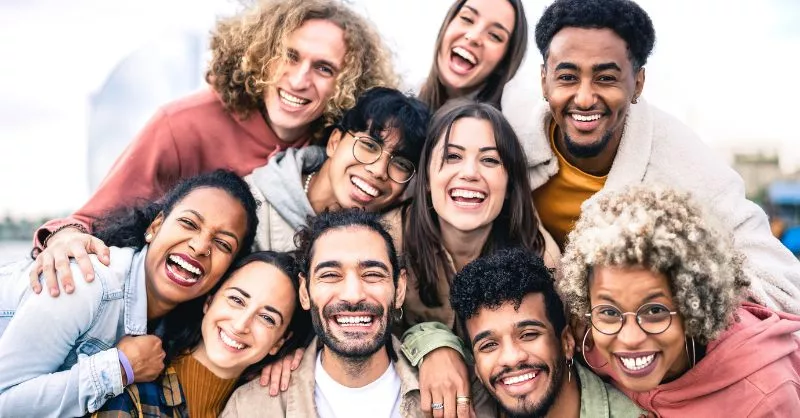
In a world where mental health awareness is gaining momentum, it is crucial to ensure that everyone, regardless of their cultural background, has access to quality mental health resources. Adapting Mental Health First Aid (MHFA) courses to various communities and cultures brings the National Council for Mental Wellbeing one step closer to our mission of making mental wellbeing a reality for everyone.
Recognizing the diversity of our communities, we recently developed Adult and Youth MHFA for the Khmer-, Korean- and Chinese-speaking Communities, and teen MHFA for Spanish-speaking Communities. These courses retain the integrity of the original content while addressing the unique needs and cultural nuances of each community. The goal is not just to provide mental health education but to do so in a way that is respectful and inclusive of culturally diverse backgrounds.
The National Council seeks out and hires skilled contractors who specialize in the appropriate languages to translate our courses. Then, to ensure cultural accuracy, we engage consultants to collaboratively review and refine the work before materials are considered final.
Throughout this process, the Mental Health First Aid USA curricula team prioritizes several key considerations, including:
Sokthea Phay, the First-ever Khmer American YMCA Executive Director at the Wang Family YMCA of Greater Boston, played a big role in reviewing and shaping Adult and Youth MHFA for Khmer-speaking Communities. One of the very few nationally certified Youth and Adult Mental Health First Aid Instructors who are bilingual in Khmer, Sokthea has been instructing MHFA since 2018 and was a longstanding advocate to offer MHFA in Khmer for the Khmer-speaking populations.
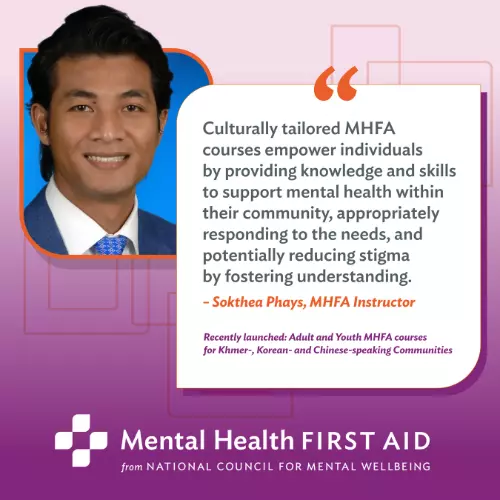
Phay said, “The MHFA course in Khmer marks a significant milestone in educating and supporting the Khmer American community across the U.S. on mental health issues.” He emphasized the disproportionate impact of various challenges, including those arising from COVID-19, inflation and housing crises, on these communities. He added, “Culturally tailored MHFA courses empower individuals by providing knowledge and skills to support mental health within their community, appropriately responding to the needs, and potentially reducing stigma by fostering understanding. The National Council for Mental Wellbeing’s efforts reflect the dedication and leadership required to address mental health challenges within underserved communities that need support.”
In MHFA for Korean- and Chinese-speaking Communities, the National Council made similar efforts to address cultural perspectives, placing a special emphasis on the importance of familial and community ties. Jae Kim, a licensed clinical social worker and Mental Health Training Coordinator with the Los Angeles County Department of Mental Health (LACDMH), became a MHFA Instructor in 2014. Kim dedicated hours to reviewing and enhancing MHFA for Korean-speaking Communities.
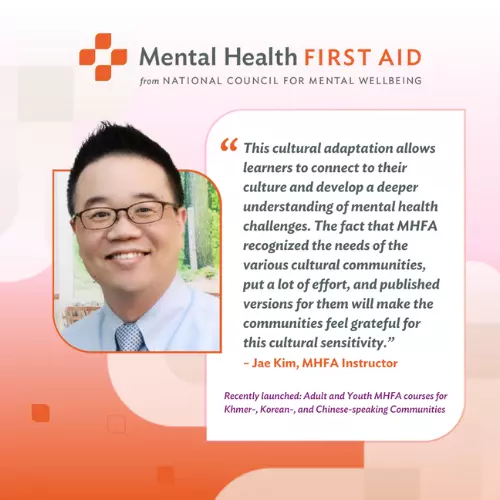
“It began with appropriately translating the various terms used in mental health into those currently used in South Korea,” he said. “The adaptations also included incorporating Korean-style names for characters and cultural experiences of immigrants in vignettes. Additionally, the content incorporated references to ‘Hwa-Byeong’, a culture-bound syndrome experienced by Koreans, characterized by long-lasting recurrent suppressed anger and depression with physical symptoms. This cultural adaptation allows learners to connect to their culture and develop a deeper understanding of mental health challenges. The fact that MHFA recognized the needs of the various cultural communities, put a lot of effort, and published versions for them will make the communities feel grateful for this cultural sensitivity.”
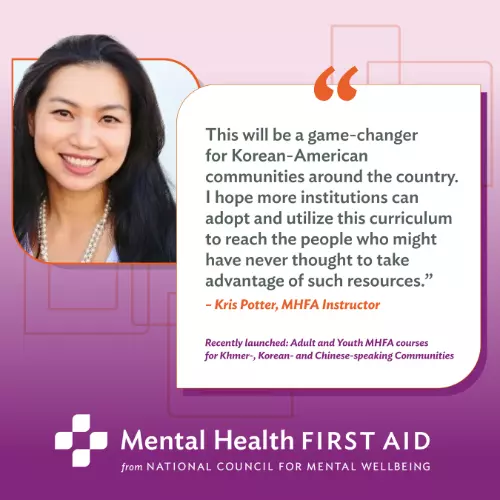
Kris Potter, with over 22 years of experience working with the Korean-speaking population in the social services/non-profit sector, became certified in MHFA under Kim’s instruction. Joining the four-member team that reviewed MHFA for Korean-speaking Communities, Potter expressed her optimism, stating, “I think this will be a game-changer for the Korean American communities around the country.” She hopes that more institutions will adopt and utilize this curriculum to reach individuals who may not have previously considered taking advantage of such mental health resources.”
One of the major obstacles to seeking mental health care is the cultural stigma surrounding mental health challenges. By tailoring MHFA courses to specific communities, we aim to break these cultural barriers. With them, individuals within these communities have access to resources that not only acknowledge but also understand and address the cultural factors that may influence perceptions around mental health.
In our commitment to providing culturally tailored MHFA courses, our approach goes beyond simple translation.
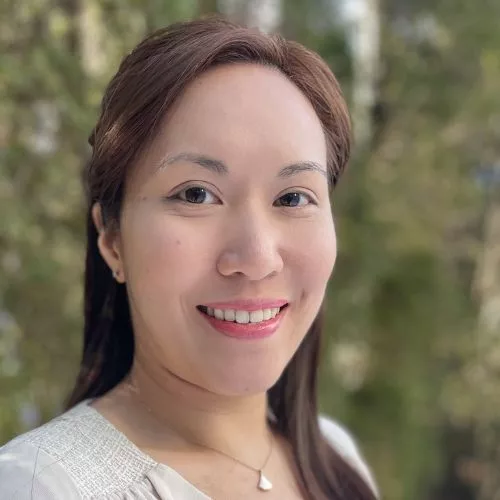
Kit Yung, Director of Family Services at Boston Chinatown Neighborhood Center and certified Adult MHFA Instructor helped develop MHFA for Chinese-speaking Communities. Yung said, “We wanted to avoid misinterpretation or misrepresentation of the original message in the courses for Chinese-speaking communities. We have carefully chosen words and phrases that are respectful and destigmatizing, aiming to create environments where individuals feel more comfortable discussing mental health openly.”
Cultural sensitivity is at the core of our approach. The training modules are designed to educate individuals on recognizing and responding to mental health or substance use challenges within their communities while being mindful of cultural differences. The courses emphasize the importance of respecting diverse perspectives and acknowledging that one size does not fit all when it comes to mental health support.
Kim further reflected, “If you look at the Korean American community, help is often not sought until the mental health crisis becomes very severe. Koreans also have a culture that views ‘suffering in silence’ as a virtue. In addition, language difficulties, concerns about cost, shame and lack of mental health knowledge make them reluctant to ask for help. Also, there is indeed a lack of mental health community resources that are tailored to the Korean community. Still, I believe that strengthening the links to these resources is also very important. I think that First Aiders who understand Korean culture and provide help in Korean are the ones who can give courage and reassurance to escape this silent pain and provide a warm hand-off to connect professional mental health resources.”
Adult and Youth MHFA Instructors who have already earned their MHFA Instructor certification for the English version of the course can access these materials at no additional cost by navigating to the Catalog page of MHFA Connect and enrolling. Once enrolled, MHFA Instructors will be prompted to complete a one-question survey to gain access to the course templates. This is a quick process; Instructors will gain access within 10 minutes of submitting the survey. MHFA Coordinators managing MHFA Instructors who have received these community-specific designations will need to contact the MHFA team via the Request Assistance form to request access to the course templates and materials.
Mental Health First Aiders can search for available courses in their preferred language through the Mental Health First Aid Find a Course tool. This tool can also be used to find and connect with MHFA Instructors certified in community-specific courses of interest. If there’s nothing available, First Aiders can consider becoming a MHFA Instructor to lead the way and bring courses to their community.
Our commitment to making mental health resources accessible to everyone is reflected in the development of these culturally tailored MHFA courses. Breaking down cultural barriers, fostering sensitivity and acknowledging the diverse needs of communities are essential steps toward creating a more inclusive and supportive mental health landscape.
By providing education that respects and understands cultural nuances, we empower individuals to recognize and respond to mental health challenges within their communities. These courses not only contribute to the destigmatization of mental health, but also pave the way for a more compassionate and culturally aware society where everyone feels seen, heard and supported in their mental health journey.